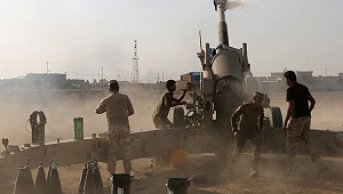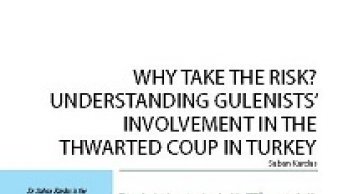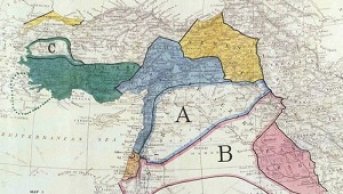Ankara’s ISIS Plan is Centered on Syria

Turkey found confronted a new set of dilemmas after ISIS offensive became a hot topic in international arena and the international coalition led by the US started to search for a solution to counter this threat. Turkey’s way of engagement in the coalition against the ISIS is presented as a test for its approach to ISIS by some analysts, diplomats and military experts. Meanwhile, several factors have helped crystalize Ankara’s demands and the coalition’s limits in terms of meeting them. These factors include the coalition’s extension of its fight against ISIS to Syria, the conflict between ISIS and PKK-PYD, the Turkish Assembly’s motion approving military action in Iraq and Syria, and Turkey’s interaction with western allies.
Ankara’s response to requests for military action against ISIS, and its demands from the allies are coherent with its policy vis-à-vis international interventions in the Middle East. Primarily, Turkey wants a comprehensive framework for addressing regional crises. Rather than a sole military action, Turkey points out the socio-economic and political roots of regional crises. On the issue of the use of military power, Ankara acts with caution. It demands a predictable road map, as it seeks to base cross-border operation commitments on the principles of regional legitimacy and support. Thus, it has formulated its strategy against ISIS, in line with the premises of its Iraq and Syria policies.
From this perspective, it can be stated that Turkey’s approach is based on handling ISIS problem with its roots in Iraq and Syria, while giving priority to local actors in the military struggle. The political transition in Iraq and the Iraqi Army and Peshmerga’s fight against ISIS, in parallel to the coalition’s air strikes, are coherent with Turkey’s approach. What is needed to be done in Syria is applying a similar approach, based on the same main pillars. Different discussions about a buffer zone, secure zone, etc. are reflections of this attitude.
Turkey’s ISIS strategy is a part of its Syria Policy
The critical point for Syria, which the deadlock according to some, is Turkey’s demand for political transition. This demand suggests that ISIS needs to be discussed within a broader Syria policy, and the ISIS should not be put in parentheses. In accordance with its engagement strategy, Turkey argues that Syrian crisis can be resolved by an effective foreign intervention.
Essentially, a solution based on political transition was the basic assumption for many international players, including the US, since the outset of the crisis in March 2011. This understanding was common before the Geneva I Conference initiated by the Group of Friends of Syrian People or the Arab League’s initiative with the UN in June 2012. However, the underlying spirit of the Declaration following Geneva Conference could not be realized in practice. The situation on the ground changed; Assad strengthened its position with the Russia and Iran’s support for the regime, while the opposition kept splitting, thus could not form a strong alternative. Therefore, the plans for a political transition lost their primary importance.
Turkey maintained its insistence on a political transition, justifying it in line with its approach to regional crises, -which is also in accordance with the theoretical literature on the subject suggests: getting to the root causes of the problem. There have been arguments that Turkey’s insistence on Assad’s departure is preventing a solution, both domestically and internationally. Despite these critics, Ankara did not change its position and resonated its policy with legitimate Syrian opposition’s demands. A fair solution that National Coalition for the Syrian Opposition and the Revolutionary Forces would accept was based on a political transition, and Turkey brought forward this demand and underlined the importance of adopting such a long term perspective.
It would be useful to talk about Turkey’s demand for a secure zone and the use of ground force against ISIS against this background. In this context, it can be argued that Ankara’s demand for a secure zone includes two meanings:
1- A secure zone is deemed necessary in order to deal with the risks against Turkey, outside of its borders. This option may include a series of measures, ranging from a military buffer zone to the establishment of an infrastructure to provide humanitarian assistance to refugees.
2- Secure zone is significant in terms of the Syrian opposition’s future and its relations with the coalition. Secure zone will provide assurance and area for the opposition to prepare for a political transition, protecting them against Assad regime’s air superiority. Considering the fact that operations against ISIS are limited to air strikes, the opposition’s joining the campaign against ISIS is only possible with security guarantees against the regime.
Turkey’s demands overlap with Syrian opposition’s demands
American strategy that expects Syrian opposition to fight against ISIS, while the opposition is under constant air strikes from the regime is not realistic. The Syrian regime’s bombing of the territory under the opposition’s control, while the coalition is bombing ISIS targets, shows the odd nature of the US strategy. Under these circumstances, a secure zone will remain a priority for Ankara.
Turkey’s green light for joining ground operations provided that its conditions are met needs to be examined in a larger context. One can argue that there is consensus on insufficiency of air strikes. This brings forward the need for having an opposition element that can fight in concert with the coalition on the ground. In the first phase, international ground forces’ use in Syria will be part of strengthening the opposition’s military capacity, rather than using the opposition to fight against ISIS. Later, international military elements might be needed for restoring order after the conflict, as well as providing humanitarian assistance, and assisting reconstruction. Such measures are essential to prevent radicalization, to the extent that they address the lack of security.
Nonetheless, there are significant obstacles for Ankara’s political transition strategy, and if needed, the use of military elements on the ground in Syria. Washington remains distant to the option. Indecisiveness of the US policy towards the Middle East is a reason for disagreements. Also, Syria’s secondary importance compared to Iraq for the US deepens the difference between Ankara and Washington. The latest statements from the US show that the distance between the two still remains. Despite the efforts by several US delegations visiting Ankara, closing the gap in a short time seems difficult, unless the US administration’s mindset radically changes.
On the other hand, Turkey’s preference remains contested under the international law. The establishment of a secure zone in Syria and employment of ground military elements will require the approval of the UN Security Council. Short of such a license, Ankara might choose to act together with a coalition of the willing, justifying it on the basis of an imminent threat against itself.
In this context, it is important to observe how the US-led coalition’s air strikes against ISIS targets in Iraq and Syria paved the way for some moves outside the UN framework. Despite its controversial basis under the international law, Ankara’s potential choice of a secure zone and use of ground forces might be potentially based on this basis, if significant political support is secured and military requirements are met.
Turkey seems to be determined not to take an action without the military and political support of a wide coalition. Although positive signals have come from England and France, as NATO General Secretary Jens Stoltenberg emphasized on 9 October 2014 in Ankara, the commitment for Turkey’s defense still remains; however, a no-fly zone in Syria stays as a topic that has yet to be debated in NATO circles.
Regarding the struggle against ISIS, Turkey insists on a comprehensive solution that includes political transition in Syria. As long as its requirements are not met, Ankara’s cautious approach is likely to continue. This means that apart from the humanitarian responsibilities, Ankara will not undertake direct commitments for cross-border military actions.
The original analysis was published in Al Jazeera Turkish website on 11 October 2014.









